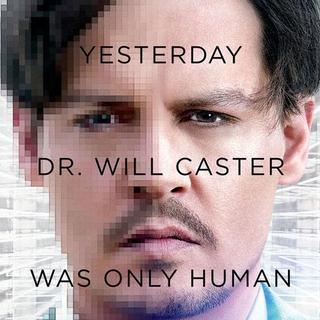
介绍:
is the directorial debut of cinematographer Wally Pfister, who used to work with Christopher Nolan. It has received negative to average ratings in the international market. However, in China, where the film is screened in 3D, there seems to be some efforts among the viewers to try and understand the ideas behind the story.
The path to making a successful science fiction film is one filled with many a traps and pitfalls. The storywriters must be vigilant not to mess with the laws of science, at least not too much; the fictitious elements must be carefully managed so they don't infringe on the story; and above all, the story must be guided by an idea that most viewers could relate to. But even if all these requirements were met, there is always the chance that the old folks at the Academy wouldn't appreciate the effort.
Wally Pfister doesn't have to worry about Academy recognition with his directorial debut "Transcendence"; he's got smaller fish to fry.
His chicly-named thriller is written by Jack Paglen, who is not widely known indeed. But Christopher Nolan is also on board the project as executive producer, so it is a bit hard to tell who masterminded the brainy script.
The story centers on artificial intelligence, nano-technology, mind control and cyborgs. A computer scientist manages to develop a sentient machine before he is assassinated by anti-science activists. In an attempt to save his life, his partner in research and life uploads his consciousness to the AI, which gives the lingering soul unlimited power in an age of information technology. Now, with great power comes great responsibility, but also greater danger, because he is still hunted by his murderers, who seem pretty determined to end his existence as many times as necessary.
When I said it is hard to tell who was responsible for the story, I mean it contains the sophistication commonly seen in Christopher Nolan films: the kind of sophistication that programs your mind to think about prescribed questions. It is difficult not to, but if you play along, you are in for answers that totally deviate from what you've been warmed up to expect.
From this side of the argument, "Transcendence" is intellectually satisfying. But on the other hand, due to some small, but obvious mishandling of common sense, the film can also be quite annoying. To explain this, we must reveal a little spoiler: when the anti-science activists seek to destroy the AI's internet-based dominance over the world, they plant a virus on a real person and send her to the den of their foe. But the AI practically lives on the internet; the easiest way to reach it is by connecting the virus to any internet interface.
But that would mean lack of spectacles, which in turn means a more boring movie. The investors put money on a cinematographer-turned-director to make spectacular, money-making films, so Pfister is compelled to deliver the visual thrill at the expense of common sense.
大家还在听

